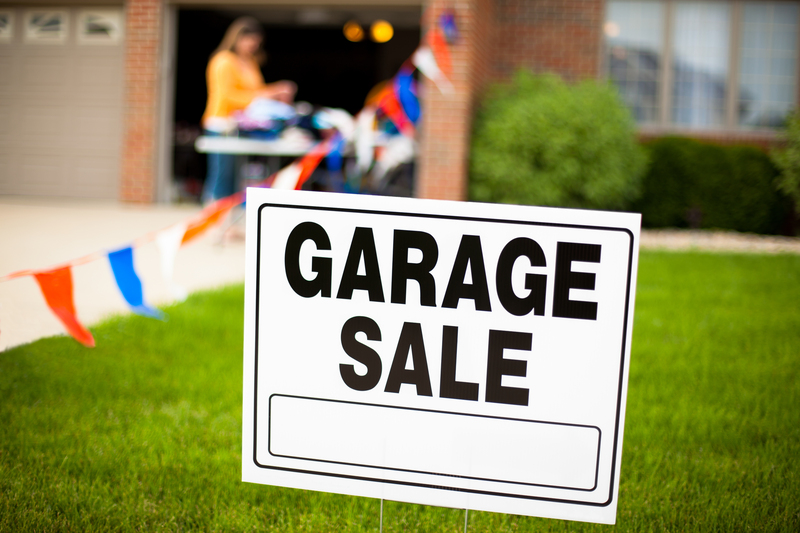Transforming Outdated Pots and Pans Through Proper Recycling
Outdated pots and pans often collect dust in the back of kitchen cupboards, but they don't have to end their lives as landfill waste. Through proper recycling and creative upcycling, you can transform old cookware into something new, reduce environmental impact, and even unleash a spark of creativity. In this comprehensive guide, we will explore the ins and outs of recycling old pots and pans, discuss environmental benefits, share clever reuse ideas, and answer your burning questions on this essential green topic.
Why Recycle Old Pots and Pans?
Many households find themselves wondering what to do with worn-out cookware. Unfortunately, millions of pounds of metal debris, including cookware, end up in landfills every year. Recycling pans and pots offers significant environmental advantages:
- Conserving Natural Resources: Metal recycling reduces the demand for raw materials, thus protecting natural resources.
- Reducing Landfill Waste: Cookware takes ages to decompose; sending it for recycling lowers landfill volumes.
- Lowering Energy Consumption: Producing goods from recycled materials uses less energy compared to virgin materials.
- Mitigating Pollution: Recycling minimizes the mining, refining, and processing of metals, which are major pollution sources.
Understanding the impact of proper recycling will encourage you to handle your outdated kitchenware more responsibly.

Types of Cookware: What Can Be Recycled?
Pots and pans come in various materials. Before recycling old cookware, it's essential to know their composition and the recycling rules for each.
Common Materials Found in Pots and Pans
- Aluminum
- Stainless Steel
- Copper
- Cast Iron
- Non-stick Coated Cookware
Most recycling centers accept metal cookware like stainless steel and aluminum. However, beware of non-stick pans, as Teflon and other coatings can complicate the process.
Can Non-Stick Pans Be Recycled?
Non-stick pans usually contain a PTFE (Teflon) or ceramic-based coating. Many centers do not accept non-stick coated cookware, or they ask you to remove the coating first. Contact your local recycling program for their specific guidelines, or consider mail-back programs offered by some manufacturers.
How to Prepare Old Pots and Pans for Recycling
Once you're ready to recycle, proper preparation is key. Follow these simple steps:
- Remove Non-Metal Parts -- Take off handles, lids, knobs, or plastic/silicone attachments.
- Clean Thoroughly -- Rinse and scrub your pots and pans to remove food residue or oils. Most centers don't accept dirty cookware.
- Sort by Material -- If possible, separate aluminum, stainless steel, and cast iron.
Note: If your pans have glass lids or plastic handles, you may need to sort them into separate recycling streams.
Where to Recycle Pots and Pans
- Curbside Recycling -- Check if your municipal program accepts metal cookware. Many do not, especially for items larger or heavier than cans.
- Scrap Metal Yards -- Most scrap metal facilities accept old pots and pans. This is the best option for metal-only items.
- Specialty Recycling Programs -- Some brands and stores offer mail-in or drop-off programs for used cookware (e.g., TerraCycle or certain kitchenware producers).
- Donation Centers -- If your cookware is still usable, consider donating to thrift shops or charities instead.
To find your nearest recycling option, search online for "metal recycling near me" or check your town's waste management website.
Upcycling: Creative Ways to Give Old Pots and Pans New Life
Beyond recycling, outdated kitchen cookware can be creatively repurposed or upcycled at home. Consider turning your old pots and pans into functional pieces, unique art, or garden accessories. Here are some inspiring ideas:
Home Decor Ideas
- Wall-Mounted Planters -- Add soil and flowers to transform your pans into quirky indoor or outdoor plant holders.
- Clocks or Mirrors -- Affix a clock mechanism or mirror to a frying pan for a one-of-a-kind kitchen accessory.
- Hanging Racks -- Use cast iron pans as the base for hanging hooks, perfect for keys or mugs.
- Art Projects -- Old lids and pans make creative canvases for painting or mosaic work.
Garden and Outdoor Use
- Bird Feeders or Baths -- Hang upside-down old pans in your garden for feathered visitors.
- Outdoor Candle Holders -- Fill with wax and a wick for a rustic garden candle.
- Tool Organizers -- Mount pans or lids in a shed to store gardening tools or supplies.
Upcycling outdated cookware not only diverts waste from the landfill but also adds personality and eco-friendly flair to your home or garden.
Frequently Asked Questions About Recycling Pots and Pans
1. Can Ceramic or Glass Cookware Be Recycled?
Ceramic and Pyrex glass cookware is typically not accepted in curbside recycling due to its high melting point. Instead, consider creative reuse or check for specialty recycling programs in your area.
2. How Can I Dispose of Pots and Pans with Non-Stick Coatings?
Non-stick coatings complicate recycling. Some metal recycling centers will accept them if you remove the handle and break off the non-metal parts. Alternatively, try mail-back recycling programs from cookware manufacturers or upcycle them at home.
3. Are Pressure Cookers and Specialty Pans Recyclable?
Yes, most pressure cookers and specialty pans are made of recyclable metals. Remove all non-metal components before recycling. If in doubt, consult your local scrap yard.
4. Is It Safe to Use Old Pots and Pans in the Garden?
Absolutely, old cookware is ideal for planters, tool storage, or as decorative outdoor elements. Ensure that any coating or material is safe for plants if growing edibles.
Environmental Benefits: Transforming the Life Cycle of Kitchenware
Properly recycling outdated pots and pans contributes to a cycle of sustainability. Here are the most significant environmental effects:
- Reduced Mining and Extraction: Every recycled pot or pan lessens demand for the mining of new metals, cutting down on resource depletion and habitat destruction.
- Energy Savings: Recycling aluminum, for example, uses up to 95% less energy than manufacturing from raw ore.
- Lowered Greenhouse Emissions: With less processing, fewer greenhouse gases are emitted.
When you transform pots and pans through recycling, you play a pivotal role in the fight against climate change and pollution.
Tips to Extend the Life of Your Cookware
While responsible disposal is critical, so is getting the most out of every piece of cookware. Here are tips to maximize their lifespan:
- Use Proper Utensils: Avoid scratching surfaces with metal utensils, especially on non-stick or enameled pans.
- Hand Wash When Possible: Dishwashers can erode certain coatings or warp materials.
- Store Carefully: Stack with care or use pan protectors to avoid dents and scratches.
- Regular Maintenance: Reseason cast iron and check for signs of wear to address issues early.
Step-by-Step Guide: Transforming Old Cookware Responsibly
- Evaluate Condition: Is the pan still usable? If only cosmetic damage is present, consider donating or upcycling.
- Research Local Recycling Rules: Every region has different requirements; check before disposing.
- Prepare Cookware: Remove non-metal parts and clean thoroughly.
- Drop Off or Arrange Pickup: Take your sorted cookware to the nearest recycling facility or arrange for collection if available.
- Share Your Efforts: Inspire friends and family to recycle by sharing on social media or community forums.

Conclusion: Make a Difference by Recycling Your Pots and Pans
Transforming outdated pots and pans through proper recycling is a simple but impactful way to contribute to a sustainable planet. Whether you choose to recycle, upcycle, donate, or repurpose, you're ensuring that less waste ends up in our environment. With the right knowledge and just a bit of effort, old cookware becomes not just trash, but a resource--one that supports clean communities and a healthier earth. Next time you're ready to retire a pan, remember: recycling and upcycling open exciting new doors for kitchenware and for our planet alike.
Start Your Green Journey Today!
Ready to tackle kitchen clutter? Take the first step and give your outdated pots and pans a new lease on life through responsible recycling and upcycling. Your small change makes a world of difference.
